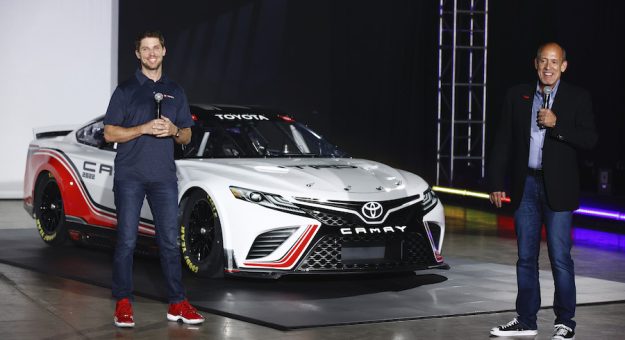David Wilson isn’t afraid to admit it. When he made the career move 33 years ago that led him to his current role, “on paper it was ridiculous.”
It was 1989. At the time, Wilson had spent the previous 18 months as a mechanical engineering supervisor at a Johnson & Johnson plant in New Jersey.
The plant’s product? Feminine hygiene products.
It was a long way from his current role as president of Toyota Racing Development.
Plus, the David Wilson of the late 1980s didn’t have a racing bone in his body. But he was enamored with the idea of being an engineer.
“I love mechanics,” Wilson told SPEED SPORT. “One of my hobbies is I love wristwatches. I love the mechanical artistry. I loved as a kid taking stuff apart, putting it back together, building engines, rebuilding engines.”
An Army brat born in Germany, Wilson is from “everywhere and nowhere.” He lived in 15 different locations before he entered higher education.
“I didn’t realize until I went to college, that’s not normal,” Wilson said. “I would meet people who went to school with the same people since kindergarten. I was incredulous. ‘That’s weird, man.’ It’s like they say, your normal is your normal.”
Wilson discovered this while attending Virginia Tech on a ROTC scholarship. There he earned a mechanical engineering degree before he was commissioned into the Army as a second lieutenant in the 101st Airborne.
Wilson eventually became a platoon leader.
“I (had) 44 men and women who were working for me and that’s intimidating,” Wilson said. “I learned about what leadership is and about how you can’t do anything without the support of a team and all of that became part of me.”
While he spent two years getting the chance to jump out of airplanes and repel out of helicopters, what Wilson didn’t “get a chance to do is be an engineer.”
“I realized a little bit too late that the Army subcontracts the real engineering to civilians,” he said. “One of the biggest professional forks in the road I had to face as a 20-something-year-old was to resign my commission and pursue my love of engineering. And I did that.”
That eventually led him to the factory in New Jersey and a “different style of leadership.”
“I would be a rotating shift supervisor and my job with a host of union mechanics and electricians was to keep these machines running. And it was fascinating,” Wilson recalled. “I can’t tell you that I was in love with it, but it was interesting.”
Though it was “a brief chapter” in his life, Wilson has “no doubt” had he stayed there he would have had a career with a Fortune 500 company. He’d “like to believe” he’d be in upper management by now.
But in 1989, he had a “curveball” thrown at him. It was pitched by his younger brother, Michael.
While Michael Wilson would eventually be connected to the Mercedes Formula 1 team, in 1989 he was far from that. He was one piece of a 25-person “little Southern California speed shop” called Toyota Racing Development.
Michael Wilson called his older brother and said, “We need some engineering help out here.”
David Wilson was dumfounded.
“I don’t know anything about race engineering,” Wilson told his brother.
“Don’t worry about it, just fly out here and talk to my boss,” Michael said.
Wilson did so.
